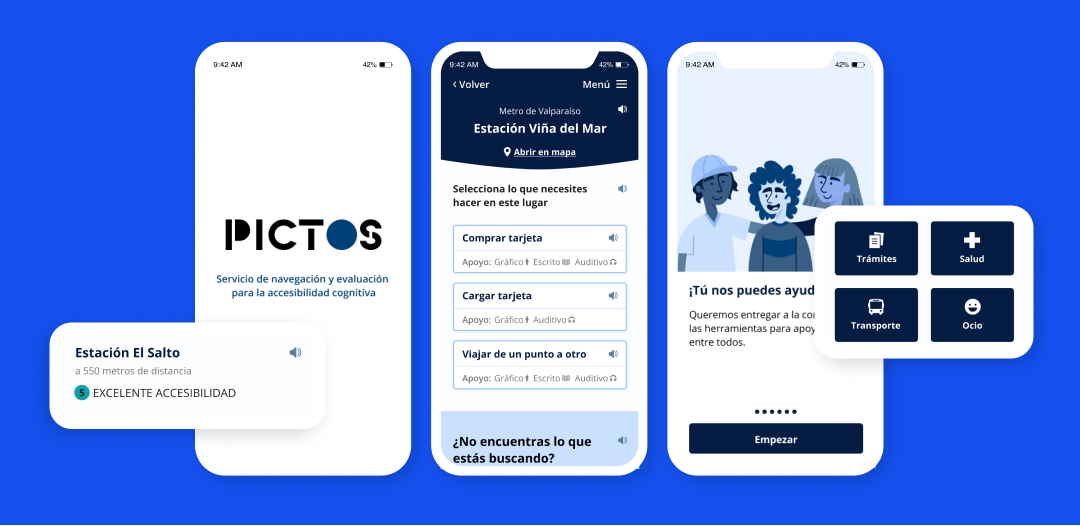
Building a support system to boost self-determination in adults with intellectual disability while they navigate through the city.

This project rises with the mission of providing the necessary support to people with intellectual disability in order to boost their independence and autonomy, empowering them within their own environment.
This project was carried out on the premise that every person deserves the same opportunities to access to information and equal conditions to do so.
As a challenge, we must ensure that everyone has the same opportunities to access to information
How the app works: the user selects a service and the activity that can be conducted within this service. Every activity or “task” shows, in simple steps, how they can be carried out. The app will show the tasks’ steps in sequential order, accompanying the person during the whole process. The app will also anticipate the information in case the person is not in the physical place.
The user will have the chance of proposing new places, evaluating the accessibility of the existent places and suggesting new tasks for each service, meaning that the user will take an active role expanding the limits of this app.
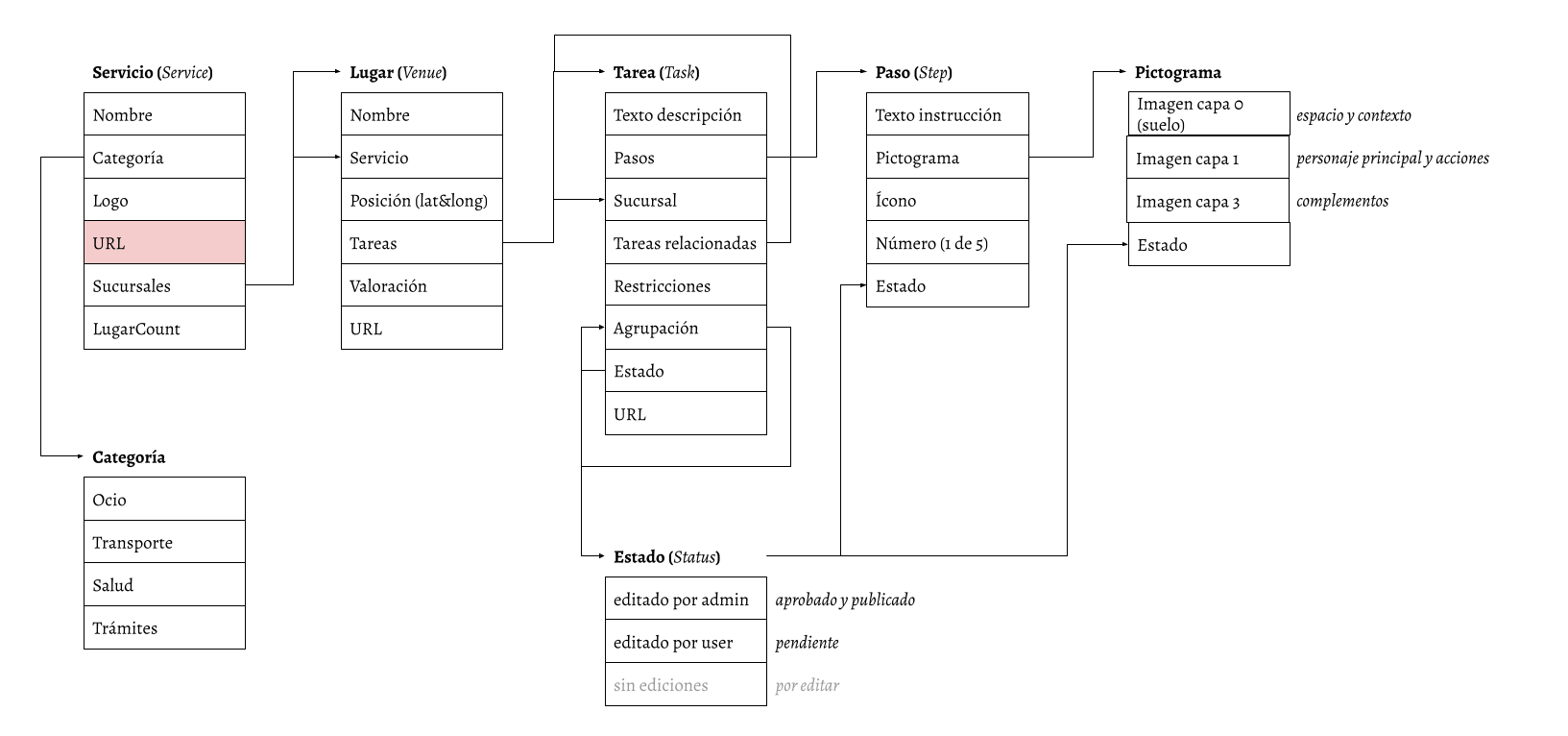
The designing process deals with the complexity of creating both platform parts: support at the time of navigating and understanding the services of the urban environment, and cooperation expanding the limits of the app. While the support part requires passive participation, the collaboration part requires of an interface that allows active participation.
A series of tests and revisions were carried out along with users and special education, psychology and sociology professionals.
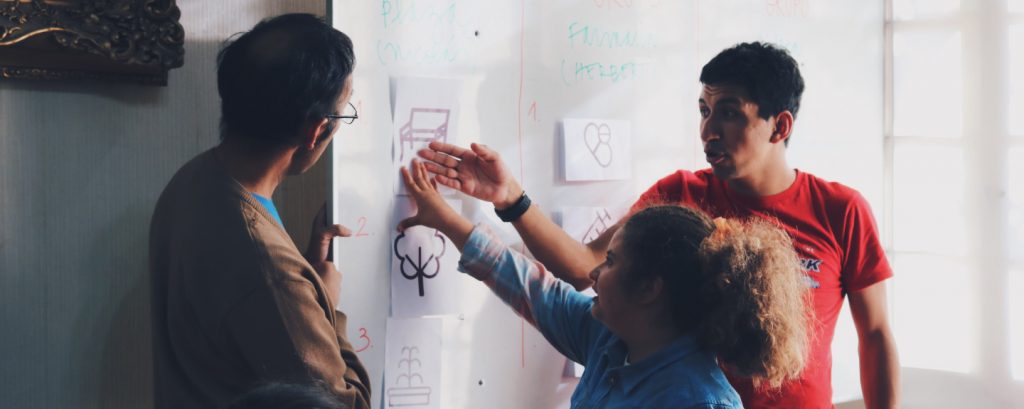
The app was supposed to be simple in order to facilitate the comprehension of this ever complex and expanding platform.
The tutorials inside the app were made to simplify some more complex interactions. This was achieved through short and concise explanations about what was coming next.
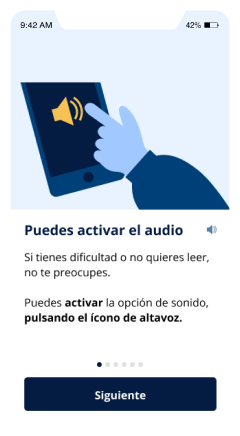
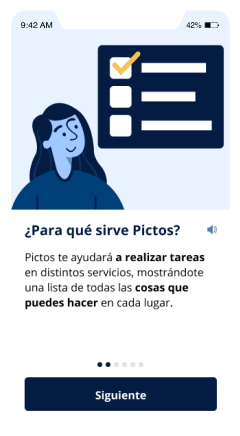
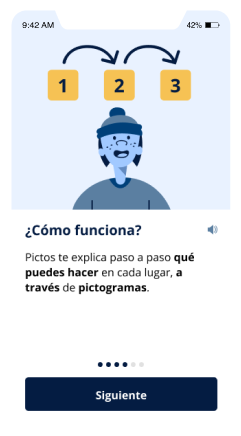
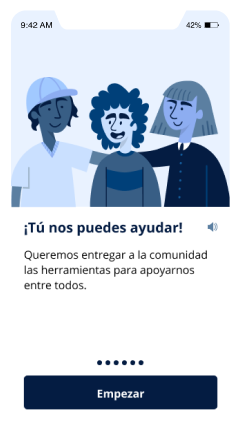
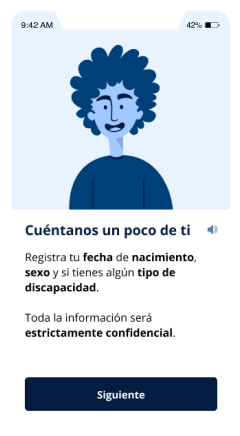
When we talk about the support part of the app, we refer to everything that exists from home to the visualization of a specific task of a service. The user receives the information provided by the app, compares that information with the information provided by the specific environment of each service and uses that information as support.
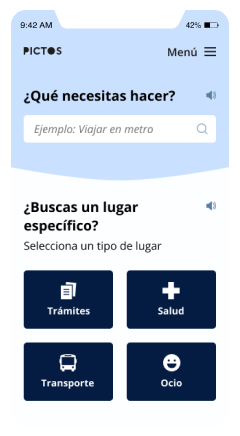
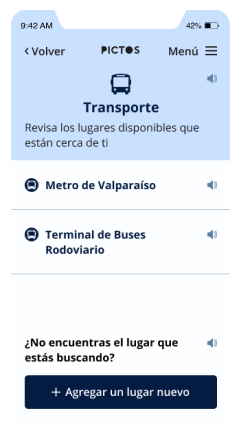
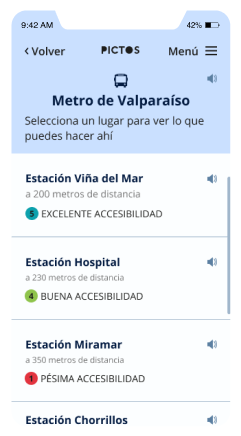
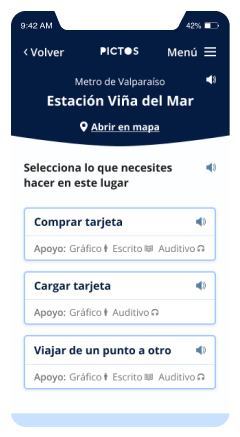
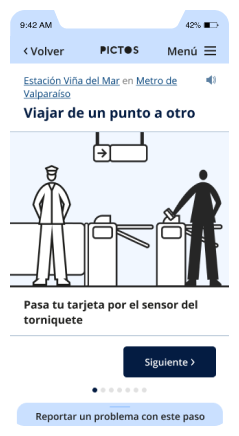
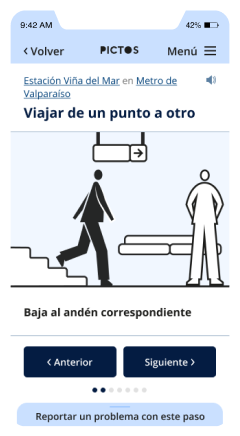
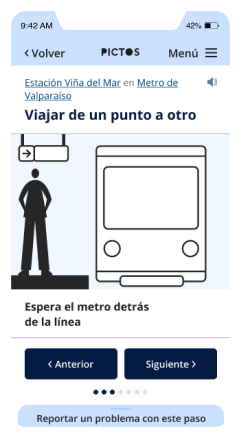
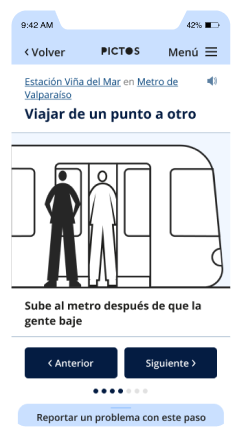
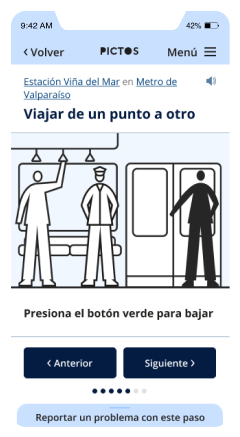
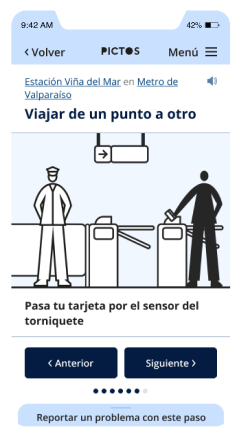
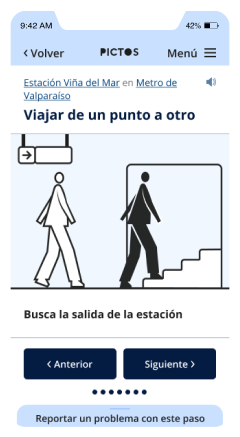
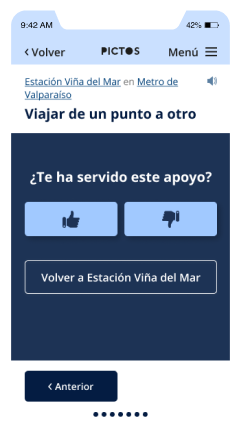
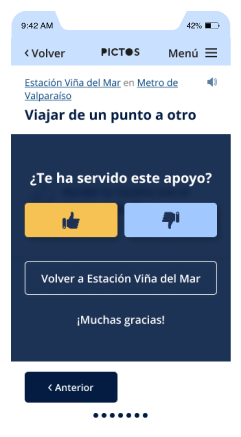
When we talk about the collaboration part, on the other hand, we refer to the group of parts that requires an active participation from the user. Active participation means proposing new places or tasks, building pictograms, reporting problems or rating the different services. Users play an important role in this part, since the app depends on their collaboration in order to keep growing. Also, considering the users’ experience, we can fix any error that arises.